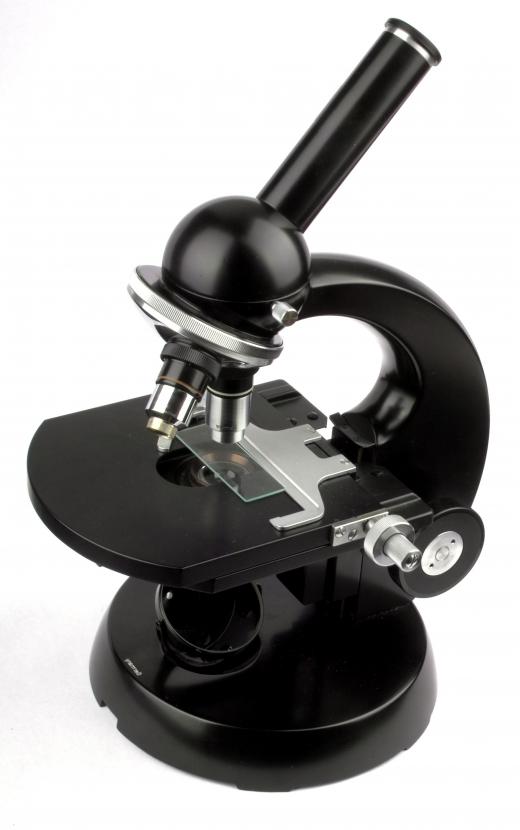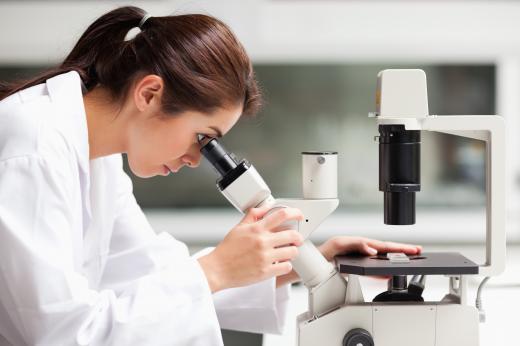What Are the Best Tips for Compound Microscope Use?
There are a few things people should keep in mind in order to be able to properly view specimens and slides under a compound microscope. First, the microscope itself needs to be properly taken care of so that the lens and the movable pieces do not become damaged. Understanding how the microscope works and knowing which knobs control which parts of the microscope is also important in compound microscope use so that a user can adjust the focus and the slide without any trouble.
The first step in proper compound microscope use is to set the microscope on a sturdy table or counter. If the table vibrates as the user is looking through the microscope, the slide will be difficult to properly focus on. Once the microscope is in place, a slide can be put on the stage and the lens put into place. When first examining a slide, it's much easier to start with the lens that has the lowest magnification, so that the specimen can be centered before a higher magnification is used.

Another tip for compound microscope use is to adjust the light source, if possible, so that it is bright but not so bright that it hurts the user's eyes. The brighter the light source, the easier it is to view a slide. It is a good idea to get into the habit of keeping both eyes open when looking into a compound microscope, even if there is only one eye piece to keep the eyes from becoming strained.

When focusing a compound microscope, the coarse focus should be adjusted before the fine focus. The coarse focus moves the stage up and down a substantial amount while the fine focus moves it only slightly. When adjusting the height of the stage, the user should be careful not to allow the slide to come into contact with the lens. In proper compound microscope use, the specimen is brought into focus on the lowest magnification and before a higher magnification is used.

Knowing what each of the parts of the microscope does is also important in compound microscope use. A user who knows where to find the coarse and fine focus knobs by feel will be able to make adjustments without losing sight of the specimen, an important skill when observing living or moving organisms. It is also important to understand how to move the slide if it needs to be adjusted because the image seen through the microscope is both reversed and upside-down.
AS FEATURED ON:
AS FEATURED ON:














Discuss this Article
Post your comments